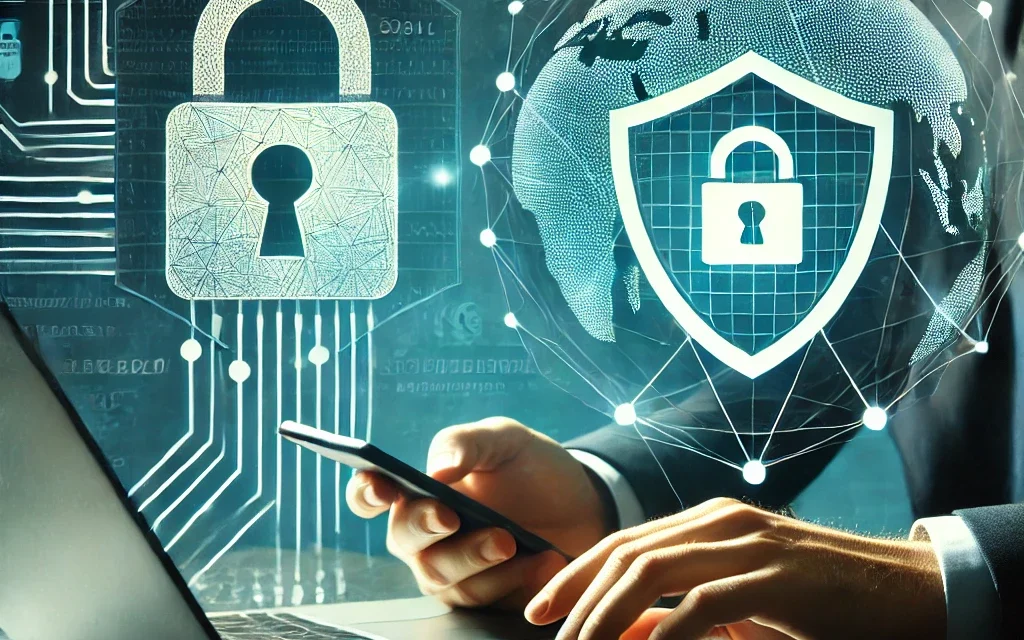In today’s digital age, online security and privacy are more crucial than ever. With the rise of cyberattacks, data breaches, and government surveillance, it’s essential to take steps to protect your personal information and online activities. One effective way to do so is by using a Virtual Private Network (VPN). In this article, we’ll delve into the benefits of using a VPN and provide you with a comprehensive guide on why you should use one.
Security: The Top Reason to Use a VPN
A VPN encrypts all your internet traffic, making it difficult for hackers or cybercriminals to intercept your data. This means that even if someone is monitoring your online activity, they will not be able to see what you are doing on the internet. With a VPN, your sensitive information such as passwords, credit card numbers, and personal identifiable information (PII) remain secure.
In today’s digital landscape, security threats are rampant. Hackers use various tactics to steal sensitive data, including phishing, malware attacks, and man-in-the-middle attacks. A VPN provides an additional layer of protection against these threats by encrypting your internet traffic. This means that even if a hacker manages to intercept your data, they won’t be able to read or access it.
Privacy: The Right to Online Anonymity
The internet is a public space, and anyone can see what you’re doing online. But with a VPN, you can enjoy the right to online anonymity. A VPN hides your IP address, which makes it difficult for anyone to track your online activities. This means that even if someone wants to know what you’re doing online, they won’t be able to.
In today’s digital age, privacy is a valuable commodity. With the rise of social media and data collection, companies are collecting more data than ever before. A VPN allows you to maintain control over your personal information and keep it private.
Accessibility: Bypassing Geo-Restrictions
Many websites are geo-restricted due to licensing agreements or copyright laws. This means that if you’re traveling abroad, you may not be able to access certain websites or streaming services. But with a VPN, you can bypass these restrictions and access content from anywhere in the world.
For example, if you’re traveling to a country where Netflix is not available, you can use a VPN to access your favorite shows and movies. Similarly, if you want to access content that’s only available in certain regions, a VPN allows you to do so without any limitations.
Speed: A Good VPN Won’t Slow You Down
One common misconception about VPNs is that they slow down your internet connection. But this is not always the case. A good VPN will optimize your internet connection speed, ensuring that you don’t experience any slowdowns or buffering issues when streaming videos or downloading large files.
In fact, many VPN providers offer high-speed connections that are just as fast as your regular internet connection. This means that you can enjoy seamless online experiences without sacrificing speed.
Additional Benefits of Using a VPN
There are several additional benefits to using a VPN:
- Torrenting: A VPN provides an added layer of security when torrenting files, making it difficult for anyone to track your downloads.
- Public Wi-Fi: When using public Wi-Fi networks, there is always a risk of your personal information being stolen or intercepted by hackers. A VPN protects your data by creating an encrypted tunnel between your device and the server, making it impossible for anyone to access your information while you’re connected to a public network.
- Government Surveillance: In some countries, government agencies may monitor online activities. A VPN provides an added layer of protection against government surveillance.
Choosing the Right VPN Provider
With so many VPN providers available, choosing the right one can be overwhelming. Here are some tips to help you choose the best VPN provider:
- Look for a reputable provider: Research the provider’s reputation and read reviews from other users.
- Check the server locations: Make sure the provider has servers in the regions you want to access content from.
- Evaluate the encryption protocol: Look for a provider that uses strong encryption protocols such as AES-256 or OpenVPN.
- Consider the price: Compare prices among different providers and choose one that fits your budget.
Conclusion
In conclusion, using a VPN is an essential step in protecting your online privacy and security. With its numerous benefits, including security, privacy, accessibility, and speed, a VPN is an invaluable tool for anyone who wants to maintain control over their personal information.
Whether you’re a business owner, traveler, or simply someone who wants to protect their online activities, a VPN is the way to go. By choosing the right provider and understanding how to use it effectively, you can enjoy seamless online experiences without sacrificing your privacy and security.







0 Comments